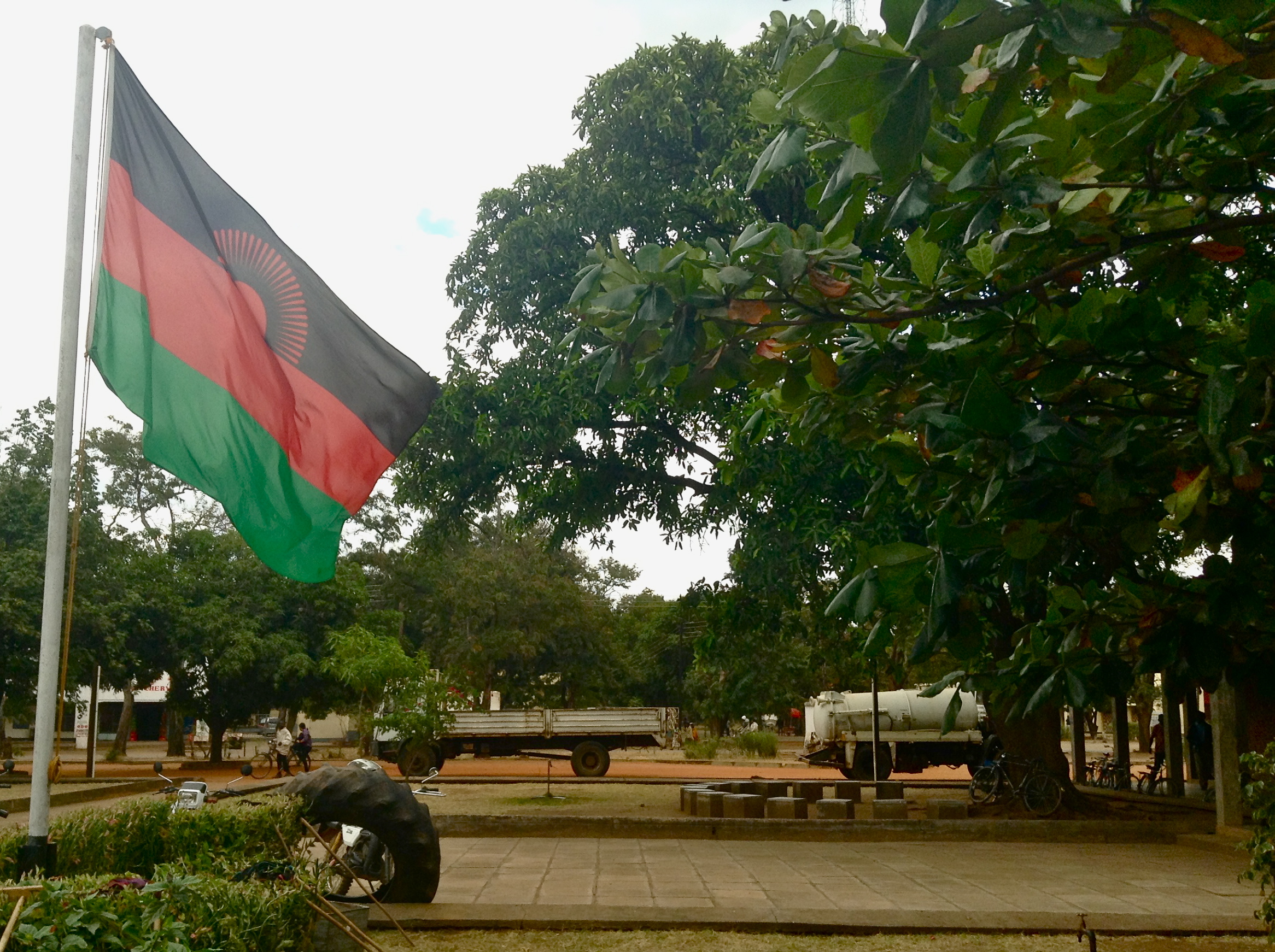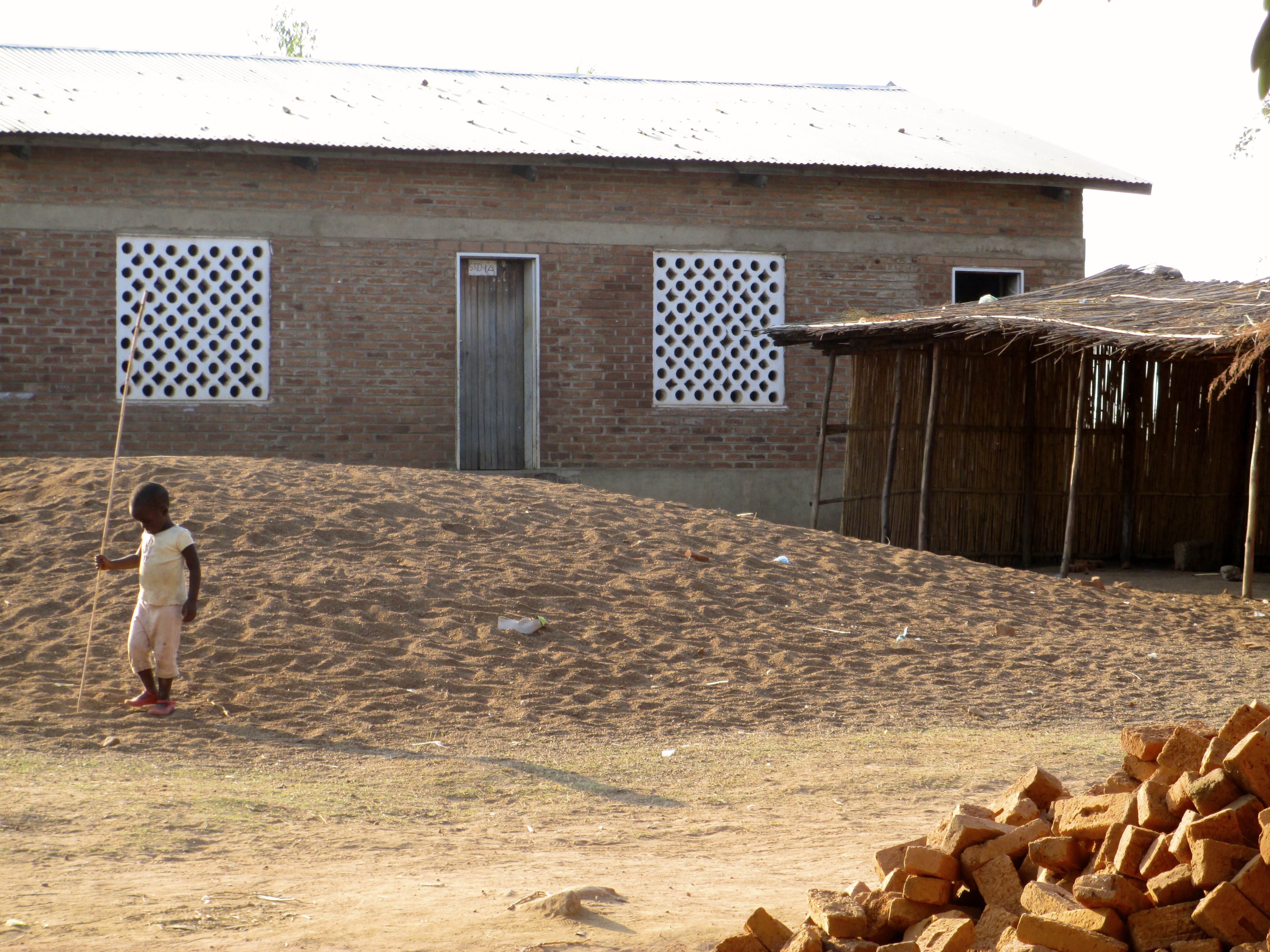
One of the biggest challenges facing cash transfer programs in Malawi is deciding who is poor enough to get the money.
The meeting was supposed to start half an hour ago, but by 8:45 a.m. only a handful of villagers have made their way to Salima, the capital of a small district in central Malawi. Many of them are still on the road, some traveling as far as 40 kilometers on bicycles or crowded minibuses.
Inside Salima's District Social Welfare Office, Macsencio Shillin waits for them. Above his desk hangs a banner with the logo of the national social cash transfer program, Mtukula Pakhomo.
Every month the households that have been identified as needy by the program receive a small amount of money to spend as they see fit. As the desk officer for cash transfers in Salima, Shillin deals with the nitty-gritty details of how to keep the money flowing. "In Salima the program is actually showing impact and the progress of the program is quite tremendous."
The sums may be small but Shillin recounts several of the program's successes–for the first time households can buy basic necessities or build shelters. "Some of these families are now able to start some income generating activities. They start small-scale businesses so that they are able to increase what they are getting from this program."
The appeal of a cash transfer program lies in its simplicity–putting money directly into the hands of people who need it most. But the straightforwardness of the exchange obscures the herculean effort that goes into making sure that the program actually helps the people it aims to serve—the poorest of the poor.
There are eight laborious steps that need to take place before any money can exchange hands. Over a period of months, the Social Welfare Office lays the groundwork for the program. They organize meetings where village residents get to meet the office staff. At the first of these meetings the village democratically elects representatives who are then trained to go out and identify the households that will receive the cash transfer.
According to Blessings Nkhoma, the director for planning and development in Salima, you can't cut corners or skip steps when preparing the community for a cash transfer. Nkhoma says the early stages of a cash transfer program can be confusing and contentious because too many people come forward to claim that their household should be selected for the program. However, after a few conversations about the program's purpose, the community and the officials usually develop an understanding: "Yes, we are all poor, but among us there is someone who is poorest."
Today, Shillin and Nkhoma are heading up the district approval meeting. The village committee and the office staff sit down one final time to go over the final list of cash transfer beneficiaries.
When the committee members arrive, Shillin shepherds them into a conference room. The community members — fourteen men and six women — sit in front of a projector as Shillin reads through the list of names and poverty rankings that are based on the data these volunteers collected. There is occasional laughter when he mispronounces the name of one of their neighbors.
The cash transfer recipients are selected based on a number of factors—the size of the household, the number of people who cannot work because of their age or illness, and how poor they are compared to their neighbors. The final column on Shillin's spreadsheet contains a simplified summary of this data. People are grouped into four categories: better, poor, poorer, poorest.
Trywell Bwanali who works at the hospital in Salima is also a volunteer with the Mtukula Pakhomo community mobilization effort. He trains community members how to collect data and identify the neediest households. "Poverty and illness are like brother and sister," he muses. Even at the local hospital, Bwanali sees the good the cash program is doing.
Bwanali believes though that too many people are left out of the program. The cash transfer has limited resources and only the bottom 10 percent are covered—but, according to Bwanali, the bottom 15 percent could benefit from a small cash infusion.
Until the program can expand to include those who are poorer as well as those who are poorest, Blessings Nkhoma remains a firm advocate for letting the community participate in the selection process. "Poverty differs from place to place," he explains, "Look at what is on the ground—if you do that you will come up with the best designed cash transfer."




